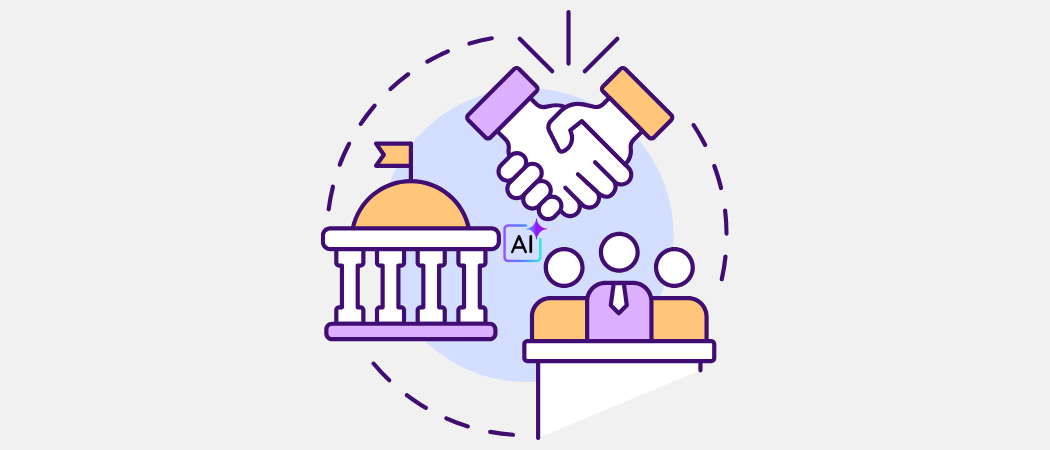AI Governance in Schools: Why It Matters for Education’s Future
Artificial Intelligence (AI) is transforming education faster than you can say “ChatGPT.” From personalized learning to automated grading, AI tools are reshaping how students learn and teachers teach. But with great power comes great responsibility. Without oversight, AI in schools can lead to ethical dilemmas, privacy breaches, and inequitable outcomes. That’s why every school needs an AI Governance Committee—a dedicated team to ensure AI is used responsibly, equitably, and effectively. Here’s why this matters and how it can spark a revolution in education.
The AI Boom in Education: Opportunity Meets Risk
AI is everywhere in schools. Tools like AI-driven tutoring platforms, plagiarism detectors, and virtual assistants are boosting efficiency and engagement. A 2024 study by EdTech Insights found that 68% of K-12 schools use at least one AI tool, and 85% of educators believe AI enhances learning. But there’s a catch: unchecked AI can amplify biases, violate student privacy, or widen achievement gaps. For example, poorly designed algorithms might favor certain demographics, and data misuse could expose sensitive student information.
An AI Governance Committee ensures schools harness AI’s benefits while mitigating risks. This team—comprising educators, administrators, students, parents, and tech experts—sets policies, monitors usage, and educates stakeholders. Without it, schools are flying blind in a digital storm.
Why This Matters Now
- Ethical Challenges: AI tools can unintentionally perpetuate biases. A 2023 case study showed an AI grading tool undervalued essays from non-native English speakers.
- Privacy Concerns: AI systems often collect sensitive data. In 2024, a major EdTech platform faced backlash for sharing student data without consent.
- Equity Gaps: Not all students have equal access to AI tools, risking a digital divide. Schools need policies to ensure fair access.
What an AI Governance Committee Does
An AI Governance Committee is a school’s compass for navigating the AI landscape. Here’s what it does:
- Develops Clear Policies: Creates guidelines for AI tool selection, use, and evaluation, ensuring alignment with educational goals and legal standards like FERPA.
- Protects Privacy: Oversees data collection and storage, ensuring compliance with privacy laws and transparency with families.
- Promotes Equity: Ensures AI tools are accessible to all students, regardless of socioeconomic status or ability.
- Educates Stakeholders: Trains teachers, students, and parents on responsible AI use, demystifying the technology.
- Monitors and Evaluates: Regularly assesses AI tools for effectiveness, fairness, and unintended consequences.
By proactively addressing these areas, schools can avoid pitfalls and maximize AI’s potential.
The Viral Potential: Why This Idea Resonates
AI governance isn’t just a policy issue—it’s a movement. Parents want safe schools, teachers want fair tools, and students want a future-ready education. An AI Governance Committee taps into these universal desires, making it a shareable concept. Imagine a viral hashtag like #AIFairnessInSchools trending on X, sparking conversations among educators, policymakers, and families. Schools that lead on this issue will be seen as innovators, gaining trust and recognition.
Real-World Impact
- Case Study: A California high school formed an AI committee in 2024, reducing AI-related academic misconduct by 40% through clear policies and student training.
- Community Trust: Schools with transparent AI policies report higher parent satisfaction, per a 2025 EdWeek survey.
- Future-Proofing: Preparing students for an AI-driven world starts with ethical modeling in schools.
How to Start an AI Governance Committee
Ready to make your school an AI leader? Here’s a quick guide:
- Assemble a Diverse Team: Include teachers, administrators, IT staff, students, and parents.
- Set Clear Goals: Focus on ethics, equity, and education.
- Engage Experts: Consult AI ethicists or EdTech specialists.
- Draft Policies: Outline AI tool usage, data privacy, and equity standards.
- Educate and Iterate: Train stakeholders and review policies annually.
Call to Action: Make AI Work for Every Student
AI isn’t going away—it’s the future of education. But without oversight, it’s a double-edged sword. Schools must act now to form AI Governance Committees to ensure AI serves every student, teacher, and community equitably. Share this post with your school board, tweet it with #AIFairnessInSchools, and start the conversation. Together, we can make education smarter, fairer, and future-ready.

